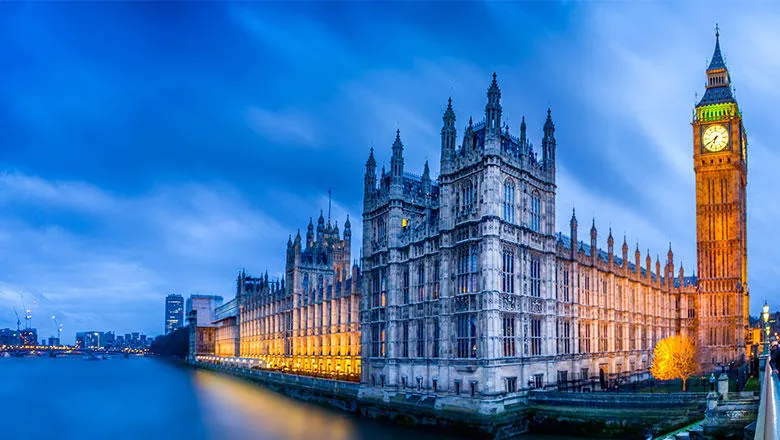01 May 2025
Doctoral students shaping policy and society: lessons from the king's parliamentary research internship
George Kinkead
True research impact is only possible if you engage with policymakers in ways that work for them

For many outside academia, the life of a doctoral student can seem cloaked in mystery. Yes, PhDs are hard, isolating, and mentally challenging; but while they’re often perceived as the pinnacle of academic achievement in the public imagination, those who navigate the process understand it differently. As my supervisor reminds me, the PhD is less a final destination and more of a plumbing apprenticeship into the research world; a vocational initiation that requires not only deep expertise but also resilience through setbacks, failed studies, rejected ethics proposals, and unsuccessful funding bids.
In addition, doctoral students must contend with persistent self-doubt and ongoing questions about the relevance of their work. You are essentially chipping away, rockhammer in hand, at a vast archaeological excavation: you work painstakingly in a tiny trench, hoping to be the one that uncovers the palace mosaic. Progress is slow, and setbacks are rarely spoken about and often left to gather dust in some file drawer. The process leaves you to wonder, alone, whether your research A) is any good B) will matter. However, for the academic profession, this notion of “mattering” has developed over recent years.
Traditionally, impact has been measured primarily by citations and publications in top-tier journals. While citations are still the currency of academic life, impact is no longer solely about how scholars regard your work. It now focuses more on how research shapes society, informs policy, and improves lives. Research impact is formally recognised through mechanisms like the UK's Research Excellence Framework (REF), which assesses universities not only on the quality of their outputs but also on how research influences society, culture, public policy, and the economy. This means that PhD students must consider the pathways their work might take beyond academic journals.
At the Policy Institute, research impact is central to the mission. True impact means driving real-world change; translating complex research findings into accessible, engaging formats, including policy briefings, blogs, media pieces, and public talks, that reach policymakers, practitioners, and the wider public. For doctoral students, learning to connect their research with the world beyond academia is an essential part of their training, and engaging with these complementary aspects of research dissemination is strongly encouraged.
One of the most exciting ways King's supports doctoral students in enhancing their research impact is through the King’s Parliamentary Research Internship Programme. This nine-month internship places King's PhD students with members of the House of Lords, allowing them to directly support peers in their parliamentary activities. Interns conduct research briefings, prepare speeches, assist with oral questions and debates, and navigate the often-complex world of legislative work.
As an intern for the past six months, the experience has been transformational. The pace of parliamentary work is a step change from the steady rhythm of doctoral research. Briefings sometimes need to be produced within days, requiring rapid synthesis of large volumes of information. In Parliament, peers are generalists, expected to contribute meaningfully across a range of issues. Consequently, briefing notes must be clear, factual, and free from jargon. The goal is clarity, precision, and relevance, with no supervisor feedback to guide you, only the responses of those in the chamber on debate day. For doctoral researchers accustomed to highly specialised academic writing, this shift can be challenging, but it also teaches lessons no lecture on writing skills ever could.
Having worked as a secondary teacher for 10 years, I understand the value of immediate and honest feedback; no one delivers it better than a class of disgruntled Year 9 mathematicians. It’s about getting a real response from those with skin in the game. The internship has offered genuine opportunities to experience this, with your words reaching members of the House who truly have the power to shape public policy
For me personally, there is a genuine buzz in seeing a question you have written asked in the chamber, or hearing a comment you crafted influence the direction of a debate. While the legislative process has its own slow-moving complexities, there is a tangible sense that your research is being used in real time to inform decision-making.
During my internship, I contributed to work on diversity, equity and inclusion (DEI), sex testing in sports, the legal definition of a “woman”, conversion therapy legislation, transgender guidance in schools, and the protection of European elections from state interference. Many of these topics were outside of my comfort zone. Yet as a PhD student, it is rare to have the opportunity to deep-dive into areas beyond your usual expertise. Approaching research without being weighed down by established theoretical frameworks can be a real strength; it sharpens your ability to identify what truly matters in a topic.
I was also fortunate to be supported by an exceptionally generous peer, who has acted as a mentor, guide, and friend throughout the six months. Getting expertise from, well, experts, is, as it turns out, pretty useful. The opportunity is broad, my cohort has seen their research impact debates on dyscalculia, assisted dying, European elections, the legal practices in public enquiries, and animal agriculture. Yes, academic publications remain the principal commodities in the academic world. But beyond this, employers inside and outside academia value researchers who can demonstrate an ability to connect knowledge with action.
Participating in opportunities like the Parliamentary Research Internship has expanded my professional network beyond academia and developed essential communication skills for engaging with diverse audiences; it is as important to write for Baroness Bull as it is for Professor Plum. For me, it has taken me out of my comfort zone and into fields far beyond my usual expertise. I have sat in the chamber and watched debates unfold, learned about the legislative process, and supported policy proposals that have had a genuine impact.
The Policy Institute are striving to develop academics that can produce research that changes lives. The King's Parliamentary Research Internship is helping by providing a divergent research opportunity and experience. Wandering through Westminster, acting as an unofficial tour guide for starstruck friends and family, is part of the package. The opportunity is broad, the learning is genuinely transformative, and, as a bonus, you can stare out over the Thames, scoffing down the cream teas in the Westminster tea rooms when it all gets a little too much.

